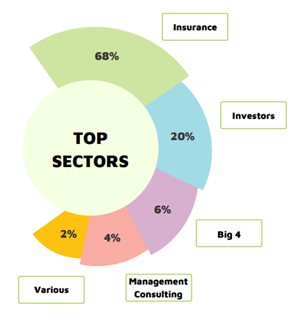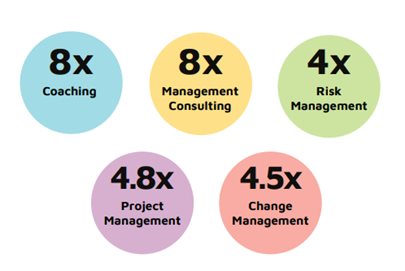The transformation of talent has begun, and organisations need to pay attention to the next generation of skilled individuals if they want to survive.
Talent is on the move, and it’s not from workplace to workplace, it’s from permanent to independent. A recent survey undertaken across thousands of data points unique to the African market - the 2022 Talent on Demand Report for Asia and Africa by Outsized – found that talented people aren’t looking for a promotion, they’re looking for experiences and opportunities.
The survey, based on Outsized talent demand generation, found that the sectors seeing the most demand for independent talent in Africa are insurance (68%), investors (20%), Big 4 consulting clients (6%) and management consulting (4%). These sectors have seen solid economic growth over the past two years which has led to increased demand for specialised skills, particularly around financial risk and regulatory projects. This trend is not just driven by the talent, the business demand for skilled on-demand people grew significantly over the past year with measurable growth in Southeast Asia, South Africa and the Middle East.

Top 5 sectors utilising freelance talent in Africa | Image supplied
Talented people want a chance to build their skills and explore new projects rather than step up another rung on the career ladder. Why? Because many have stepped off the ladder completely, becoming high-end independent consultants and enterprise-grade freelancers with the freedom to choose.
When it comes to remuneration, however, there are still some hurdles to be overcome. Freelance and independent consultant rates in South Africa are up to 50% lower than comparable skills in developed markets but this doesn’t mean they’re low in the local context. In fact, this means that independent consultants can earn well in South Africa but are equally desirable on the global stage as they are competitive in both skills and cost. As a result, there is a clear uptick in international interest in the country.
In-demand skills
What’s also interesting is the skillsets that are in the highest demand right now. For insurance and management consulting, data analytics is a huge priority; while for the Big 4 and investors, it’s legal and regulatory skills. Drilling down into the insurance market, the other priority skills include actuarial, business intelligence, accounting and data architecture; while for management consulting its data engineering, data science, solutions architecture and data visualisation. For the Big 4, legal and regulatory was joined by Murex, quantitative analytics, treasury and credit risk; while for investors, it’s programme evaluation, risk management, market research, and programme management.

Skill growth in Africa for Y’21 | Image supplied
Overall, skills in these areas can translate easily to new markets and opportunities as independent contractors are not limited by location or geography, not anymore. The past two years have put most companies on a solid digital foundation that allows for companies to become more versatile in their hiring, and in their skills development approaches. There is so much more talent moving out of organisational walls towards the freedom of contracting and job outsourcing that many companies expect at least 30% of their future workforce to be non-permanent. But the reasons for this move differ…
Companies are inclined towards hiring independent contractors for a number of reasons but perhaps accessibility and flexibility are the two that lead the way. On-demand talent can be hired for specific periods of time, within set project parameters and budgets, and can flex to fit in with changing customer requirements or project changes. It also means that companies aren’t fighting tooth and bottom line for skilled people in a market where they are rare, expensive, and rarely stay with the company for a long time. Add to this the transparency of working with an independent contractor, the fact that there’s no race to the bottom, and the ability to customise need to budget, and it’s easy to see why the independent contractor looks so appealing to a pressurised enterprise.
Another benefit for the company is that independent talent has the potential to bring in fresh thinking while filling in capacity gaps on demand, and not requiring hand holding or extensive paperwork to get started.
Increasingly independent
This sentiment is reflected by the independent contractors themselves with a marked increase in people going independent in 2021, and the value that they get from working for companies on their own terms, and within their own timeframes. Becoming talent on demand means that contractors have the freedom to take roles or projects that inspire them, and often this variety adds immense weight to their CVs and their expertise, making them increasingly desirable to companies that want proven, intelligent, and capable talent. And, they can choose who they work with and why, which makes a big difference in the era of the Great Resignation.
The future is a world defined not by the walls of a cubicle. It is a world where corporates and talent are learning to thrive in a new normal that’s powered by laptops, digitalisation, access, remote working and skills. It’s as profound an attitude shift for the company as for the employee – both finding their way as they unlearn the traditional ways of working. The future, where talent is remote and independent and on-demand, is one that’s powered by greater equality between enterprise and talent, and that will likely see significant benefits for both.









































